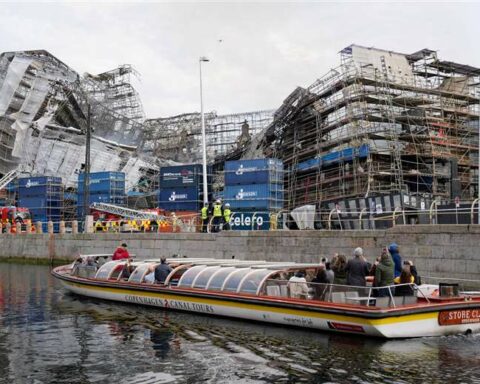May 16, 2023, 7:43 AM
May 16, 2023, 7:43 AM
Sugarcane and soybean producers, as well as heavy transport trucks, begin a road blockade today to demand the repeal of decrees 4910 and 4911. The protest will take place at the Friendship Bridge, 68 km from Santa Cruz de the saw. The Government describes the decision as “unnecessary” and “misguided”, and maintains that these observed norms cannot yet be executed, although they carry out actions under this framework.
“We confirm the indefinite blockade until the repeal of decrees 4910 and 4911,” said Eliazer Arellano, leader of the producers of the Integrated North of Santa Cruz. However, the canemen said that it will be until 18:00.
“There is support from various institutions. Hopefully we can have a quick solution once and for all, because we are starting the sugarcane harvest and we don’t want to harm ourselves,” said Óscar Arnez, president of the National Confederation of Bolivian Cane Producers (Concabol).
Jimmy Méndez, district director of the National Hydrocarbons Agency (ANH) in Santa Cruz, described the decision as “misguided.” “We are in the regulation stage, which means that what the decree says is not being complied with. Without regulation, we cannot execute, ”he asserted.
The time in which the regulation is drawn up “will last as long as the period of socialization with the different sectors lasts,” said Ariel Montaño, operational specialist at Yacimientos Petrolíferos Fiscales Bolivianos (YPFB), who described the indefinite blockade as “unnecessary.” . The “decree is in the regulation stage, so it has not yet been executed,” he agreed.
However, the ANH reported on its social networks that it carried out various actions in “compliance” and “execution” of Decree 4910. The producers reported, in turn, that apprehensions were also made.
The Minister of Hydrocarbons and Energies, Franklin Molina, regretted that there are “economic and political interests” that seek to destabilize the supply of fuels and agricultural production. “We understand that it is not the entire sector,” he said.
Arellano and Arnez confirmed that sectors of producers from Yapacaní, San Julián and regional heavy transport, among others, will join the blockades.
“All the comrades who are in the place” of the blockades “are going to join” the measure of pressure, “because the lack of fuel is not only for farmers,” said Juan Yujra, president of the Heavy Transport Coordinator of Santa Cruz.
The diesel supply in the department is “abnormal, because the quota has been reduced to the pumps. If before they gave them 60,000 liters today they give them 35,000 or 40,000. Yesterday (Sunday), for example, there was no diesel in several pumps and in those that did have it, you had to wait in line,” said the leader.
Montaño and Méndez assured that the dispatch of fuels is normal for the Santa Cruz market, where diesel consumption is 2.5 million liters per day. “In order to reduce the lines at pumps, caused by unnecessary speculation, we are increasing daily shipments to 2.7 million liters per day,” Montaño said.
“Diesel and gasoline are being marketed in a normal and continuous manner. Today (Monday), our service stations are without queues,” Méndez said.
The mobilized do not agree with this position. “Today, we are at the pumps, lining up (…). Later, if this does not prosper, we are going to be opening other blocking points”, anticipated Yujra. “We are going to be accompanying these struggles, because without the farmers we also do not live (…), They give us work,” he said.
Montaño said that the Government has had roundtables for dialogue, training, and negotiations with different sectors to address decrees 4910 and 4011, which have the objective of increasing the mechanisms for regulation, control, supervision, and inspection in the commercialization of gasoline and diesel through various modifications and additions to the legal framework.
“There is no affectation of the decree. Yes, it is necessary to go through a registration stage, for which the ANH is present in all the municipalities carrying out this work, indicated Méndez.
“The important thing is that the diesel dispatch is guaranteed.” Producers “must be patient and wait for the necessary regulations,” said Montaño.
“We want to speak with the president (Luis Arce), not with the ministers,” said Arellano, who believes that the government “does not listen to Bolivians” and that it only responds with “gasifications.”








